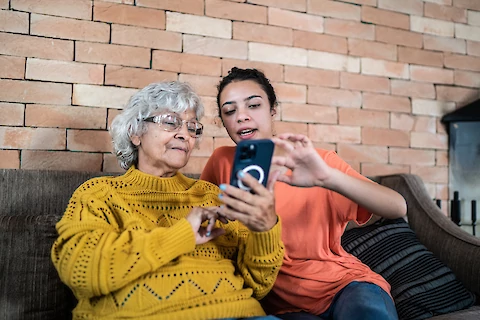
In today's digital age, smartphones and tablets play a significant role in your everyday lives. As you increasingly rely on apps to stay connected, entertained, and informed, you need to be aware of the permissions these apps request and their potential impact on your privacy.
If you're a senior who's concerned about apps having too much access to your contacts, location, and other sensitive information, this guide is for you!
Understanding App Permissions
App permissions are the access that apps request to certain features and data on your device, such as your location, camera, microphone, or contacts. Apps need permissions to function properly, and they request these permissions to enhance your user experience. For example, a map app may request access to your location to provide accurate directions.
However, granting unnecessary permissions can pose risks to your privacy and security. Some apps may access and share your sensitive information without your knowledge, leading to potential identity theft, spam, or even financial fraud.
Navigating App Permissions
To check and manage the permissions of your apps, follow these steps:
- For Android devices: Go to Settings > Apps & notifications > App permissions.
- For iOS devices: Go to Settings > Privacy.
When installing a new app, you'll be prompted to grant or deny permissions. Be sure to read the list of requested permissions carefully and decide if they make sense for the app's purpose. Don't hesitate to deny permissions if you feel uncomfortable or if the request seems unnecessary.
Managing Existing App Permissions
It's a good idea to review and modify the permissions for apps already installed on your device. To do this, follow these steps:
- Android: Go to Settings > Apps & notifications > App permissions.
- iOS: Go to Settings > Privacy.
If you find apps with excessive permissions or apps you no longer use, you can uninstall or disable them by following these steps:
- Android: Go to Settings > Apps & notifications > See all apps, then tap on the app and select 'Uninstall' or 'Disable.'
- iOS: Press and hold the app icon, then tap 'Delete App.'
To reduce the amount of mobile data used by apps running in the background, you can restrict their background data usage:
- Android: Go to Settings > Apps & notifications > App info > Data usage, then toggle 'Background data' off.
- iOS: Go to Settings > Cellular > Cellular Data Options, then toggle off the apps you want to restrict.
Tips for Safely Using Apps
Follow these best practices to ensure a secure smartphone experience:
- Only download apps from trusted sources, such as the Google Play Store or Apple App Store, to avoid potentially harmful apps.
- Read app reviews and research the app developer to ensure they have a reputable history and positive user feedback.
- Regularly update your apps, as updates often include security patches that protect your data and privacy.
- Use strong, unique passwords for each app, and enable two-factor authentication when available to add an extra layer of security.
Additional Resources
For a deeper understanding of app permissions and security best practices, check out these helpful resources:
- How to manage app permissions on Android
- Managing privacy settings on your iPhone or iPad
- A guide to the best privacy and security apps
Safety and Security is What We're About
By being proactive in managing permissions and following best practices, you can minimize risks and protect your sensitive information. While tech support isn't officially in our wheelhouse, we can help our clients find the resources they need. If you're a senior living in Boise, Eagle, Nampa, Meridian, Caldwell, or Lewiston, contact us at Senior Helpers Boise Treasure Valley!